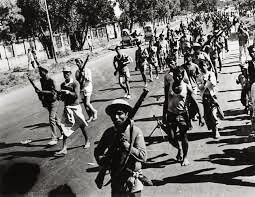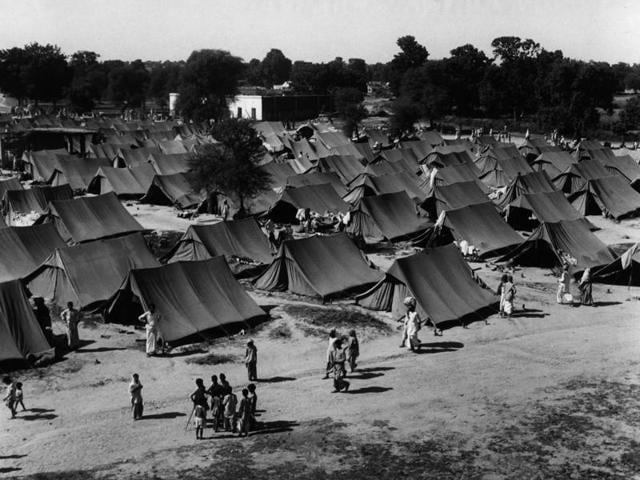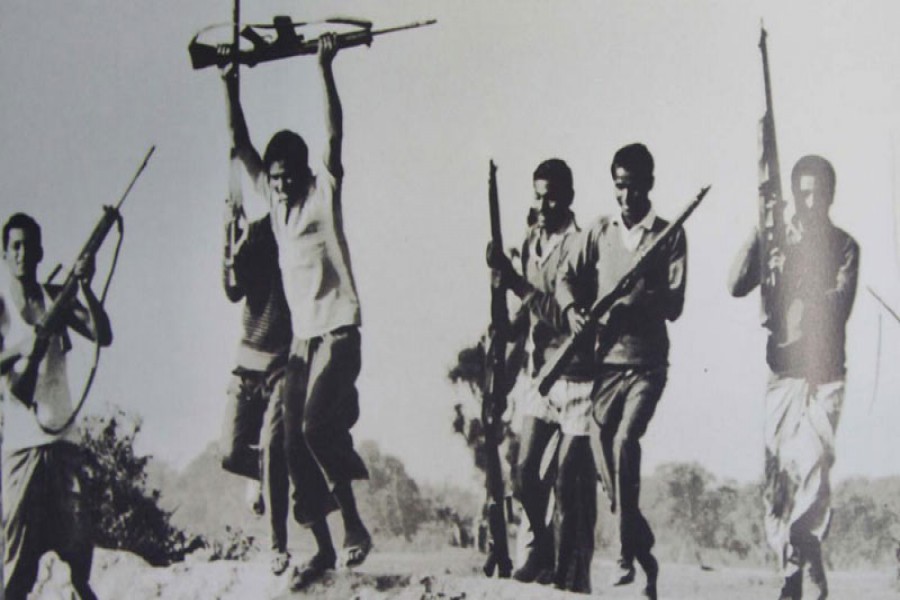Bangladesh Liberation War Untold Tales of Heroes and Harrowing
The Liberation War of Bangladesh: Stories of Courage, Sacrifice, and the Fight for Freedom
A Defining Moment in Bangladesh’s History
The Liberation War of Bangladesh in 1971 wasn’t just a military conflict—it was a fight for identity, freedom, and justice. It was a moment in history that shaped the destiny of an entire nation, born from the flames of oppression and nurtured by the courage of millions.
While textbooks recount battles and leadership, the real essence of the war lies in the sacrifices of ordinary people, the resistance of intellectuals, and the heroism of unsung fighters. This blog dives deep into the human stories behind the headlines—stories that continue to shape Bangladesh’s national identity and global significance.
The Roots of the Liberation War: Language, Rights, and Identity
The seeds of the Liberation War were sown long before 1971. After the partition of India in 1947, East Bengal (later East Pakistan) was joined with West Pakistan under one nation, despite their vast cultural, linguistic, and economic differences.
The Language Movement of 1952 was an early sign of East Pakistan’s desire for autonomy. The demand to recognize Bengali as a state language became a symbol of resistance. Over the next two decades, disparities in political power, economic resources, and cultural recognition widened, pushing East Pakistan further toward a demand for independence.
March 1971 and Operation Searchlight
On March 7, 1971, Bangabandhu Sheikh Mujibur Rahman delivered a historic speech calling on the people to prepare for independence. But it was March 25, when the Pakistani military launched Operation Searchlight, that the war officially began.
The attack on unarmed civilians in Dhaka and other cities was brutal. Universities, student hostels, and homes were bombed. Innocent people were targeted, and the cry for freedom became unstoppable.
The Unsung Heroes: Ordinary People with Extraordinary Courage
The Liberation War of Bangladesh was not only fought by trained soldiers—it was fought by the people. Farmers, students, teachers, and even children took part. The Mukti Bahini, a guerrilla force formed by civilians and defected military personnel, became the backbone of the resistance.
Children carried secret messages.
Villagers provided shelter and food to freedom fighters.
Women served as nurses, intelligence agents, and even frontline fighters.
These stories rarely make it into mainstream history books, yet they represent the soul of the struggle.
Women in the Liberation War: Bravery Beyond Boundaries
Bangladeshi women displayed unmatched courage during the war. They broke social norms, risked their lives, and contributed in every possible way.
Some served as freedom fighters, picking up arms and joining the Mukti Bahini.
Others worked as spies, collecting vital intelligence on enemy movements.
Thousands became Birangona—a term given to women who suffered sexual violence during the war. Despite their trauma, many of them emerged as pillars of strength and rebuilt their lives while inspiring others.
![The Bangladesh Liberation War was not only fought by generals and political leaders; it was fought by everyday men and women who sacrificed everything for the independence of their nation.Stories of these unsung heroes — freedom fighters acting as guerrilla combatants, villagers sheltering refugees, and even children carrying messages — are often overlooked. For example, women demonstrated incredible courage, fighting alongside men on the battlefield and working as spies to obtain crucial intelligence for the Mukti Bahini (Liberation Army). These individuals were the true backbone of our nation, and they gave everything — their blood, sweat, and tears, and in many cases, their lives.[/caption] Women The World Over: A Revolution Across Borders Women performed an unmatched role throughout the Liberation War, not just as caretakers but as energetic participants in the battle for independence.](https://banafg.com/wp-content/uploads/2025/04/the_women_in_our_liberation_war_2.jpg)
Women like Kazi Fatema Begum and many unnamed heroines made contributions that are rarely recognized but eternally significant.
The Intellectual Martyrs: Silencing the Nation’s Voice
The Pakistani army understood that intellectuals were the brain of the movement. In a calculated move, they abducted and killed hundreds of Bangladesh’s brightest minds during the final days of the war—professors, writers, doctors, and journalists.
Munir Chowdhury, a revered professor and writer.
Shahidullah Kaiser, a journalist known for his progressive voice.
Their loss was not just personal—it was a national wound. December 14 is now observed as Martyred Intellectuals Day in their honor.
Life in Refugee Camps: Struggle and Survival
During the nine-month war, over 10 million people fled to India, seeking refuge from the violence. The camps in West Bengal and other Indian states were overcrowded and under-resourced.
Refugees faced starvation, disease, and emotional trauma.
Many children were orphaned.
Yet, even within these harsh conditions, the spirit of survival prevailed.

These displaced citizens formed the human cost of the war, and their stories remain critical to understanding the post-war challenges Bangladesh faced.
Global Attention and the Final Victory
The humanitarian crisis drew international attention. Prominent figures like George Harrison and Ravi Shankar organized the Concert for Bangladesh to raise awareness and funds.
India, after initially offering shelter, entered the war in December 1971 following Pakistani attacks on Indian territory. The Indo-Bangladesh allied forces rapidly defeated the Pakistani army.
On December 16, 1971, Pakistan surrendered, and the independent nation of Bangladesh was born.
Rebuilding a Nation: From Ashes to Aspiration
The war left the country devastated—economically, socially, and psychologically. Yet, from these ruins, Bangladesh began to rebuild.
A new constitution was drafted in 1972.
International recognition followed quickly.
The spirit of resilience, embedded in the war’s legacy, fueled progress in education, health, and economic sectors.
Today, Bangladesh stands as a testament to the power of people’s will, emerging as one of South Asia’s fastest-growing economies.
Why These Stories Matter: The Legacy of 1971
The Liberation War of Bangladesh is not just a part of history—it is a part of our identity. Every story of courage, sacrifice, and resistance reminds us of who we are and where we come from.
These untold stories are essential for:
Educating younger generations about patriotism and resilience.
Preserving historical truth against revisionism and denial.
Honoring every Bangladeshi who played a role in securing freedom.
Conclusion: Honoring the Past, Shaping the Future
The story of Bangladesh’s Liberation War is one of the most powerful narratives of freedom in modern history. While leaders and generals played their part, it was the people of Bangladesh—brave, resilient, and united—who turned the dream of independence into reality.
Let us continue to remember, document, and celebrate these stories—not just on Victory Day, but every single day.


